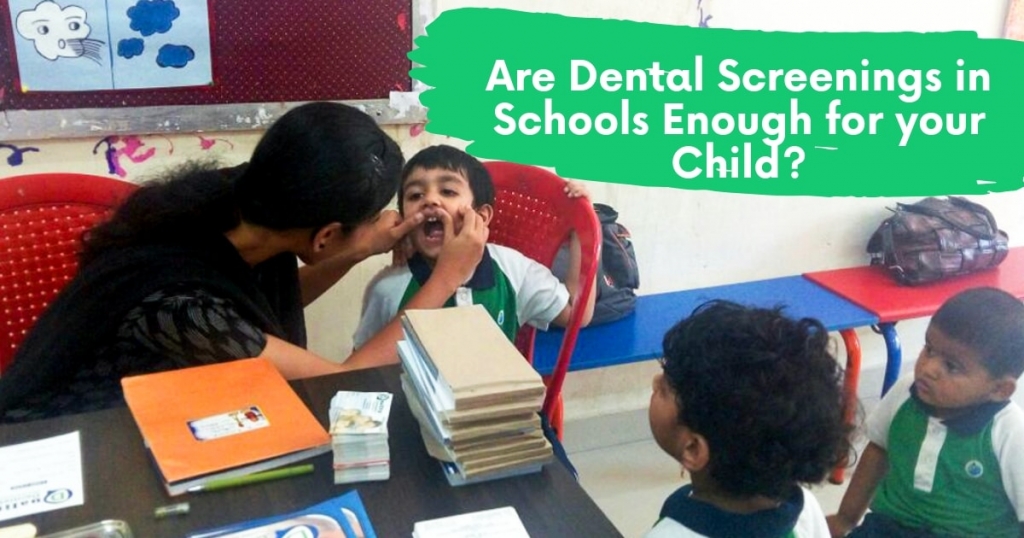A child’s oral health is as important as their overall health. Early diagnosis of oral problems can be helpful in treating the condition before it causes too much damage. It is very common to see several dental clinics conducting regular school visits nowadays. The concept of dental clinics visiting the schools serves as a constant reminder about the importance of oral hygiene and dental check-ups. The school visits by dental clinics also educate the children on proper brushing techniques, flossing techniques and provides dietary advice for healthy teeth. Are dental screenings in schools enough for your children? Let us explore.
Dental Screening Methodologies in School
- When dentists from a dental clinic visit a school, they generally use a mouth mirror to scan through the mouth.
- The dentists normally look for visible cavities only.
- Normally dentists do not carry any types of equipment for treating any dental conditions as the logistics do not support it
Constraints of Dental Screening in School
- The dental camps conducted in schools have too many constraints like time and lack of equipment. Hence though they can provide a thorough check-up, they cannot treat the problems.
- Since the children are not treated in school, the parents should take the opportunity to visit the dentists. Hence the parents can understand the constraints of dental checkups in schools.
Advantages of Dental Screening in Dental Offices
Dental check-ups in dental clinics comprise of proper probing of each tooth, the examination of the gums, bad breath, alignment of the teeth and overall function and development of the jaws. This ensures a complete 360 view of our teeth. Dentists may also advice taking bitewing and Panoramic X-rays depending on the age and oral status of the child. Panoramic X-rays are used to view the entire mouth in one image. Bitewing X-ray is used to detect the presence of dental caries in between the teeth. It is also used to detect changes in the jaw bone caused by gum diseases.
The primary focus is given to the child’s primary teeth or milk teeth. Primary teeth in children remain until the age of 10 to 12. Proper hygiene and care should be given to milk teeth or primary teeth. The health of the primary teeth ensures the health of the permanent teeth.
Conclusion
Though dental screening camps are encouraged, it does not mean that you can skip your routine dental check-ups. Since routine dental check-ups provide a complete overall check-up of your teeth, it is always advised as the right measure.
